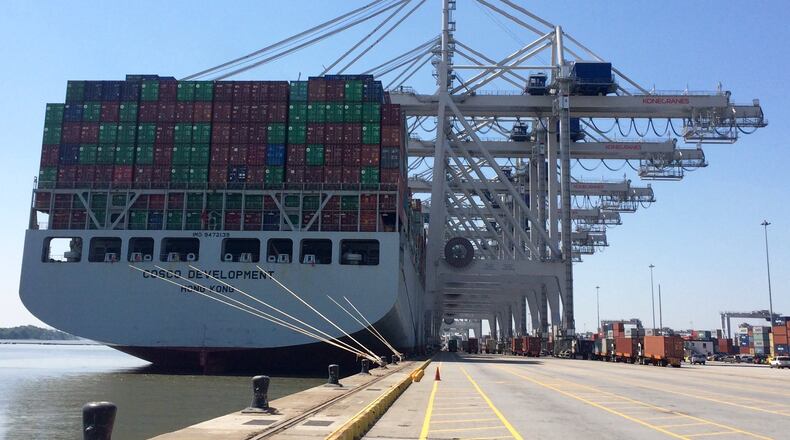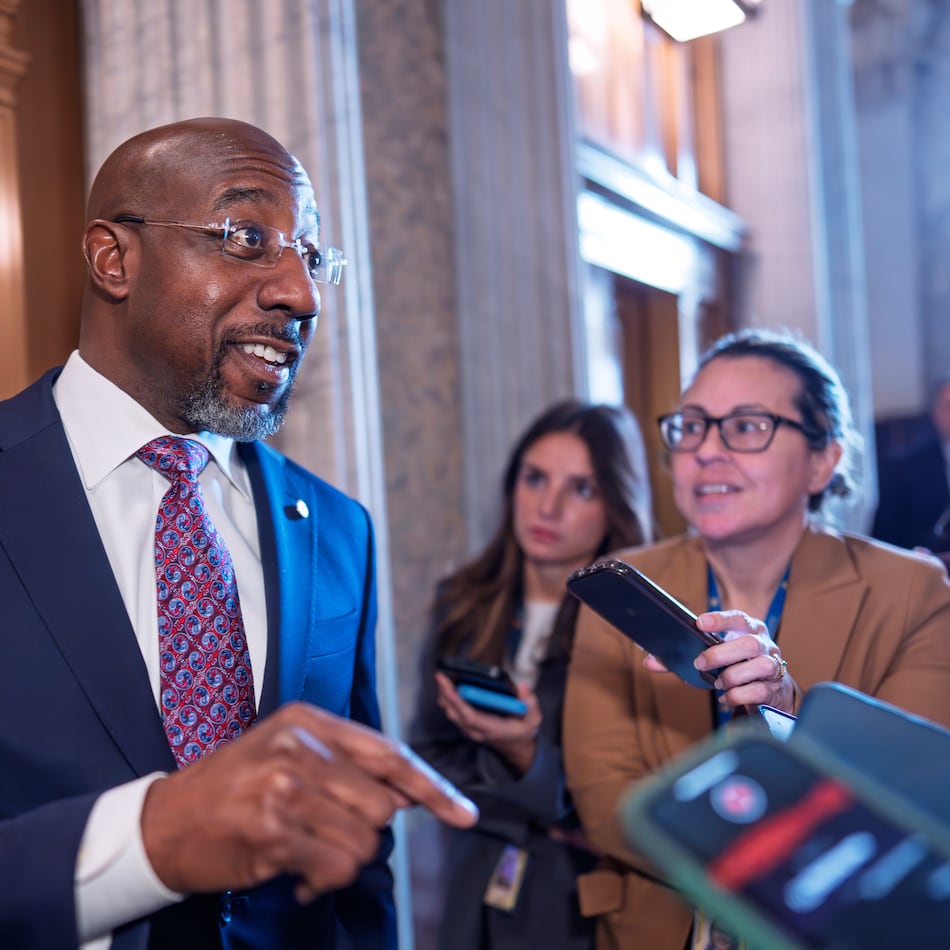Top officials connected to the Savannah port said Thursday that federal funding for the state’s top economic development project is safe after the White House announced President Donald Trump would declare a national emergency to build a border wall.
Congressman Buddy Carter, R-Pooler, whose 1st Congressional District is home to the port, said he received assurances from the White House budget office that federal funding for the nearly $1 billion harbor dredging project would not be diverted to help finance the new barriers.
“If President Trump does take action, I have already been working with the relevant departments to ensure the critical projects in the First District receive the resources needed” he said. “The Office of Management and Budget has assured me that the Savannah Harbor Expansion Project will not be targeted.”
Jamie McCurry, chief administrative officer for the Georgia Ports Authority, said “at this point, our understanding is that funding will remain in place and the project will proceed on schedule.”
Their comments came shortly after White House Press Secretary Sarah Huckabee Sanders confirmed that Trump would take executive actions, including declaring a national emergency, to “stop the national security and humanitarian crisis at the border.”
Declaring a national emergency gives Trump broad leeway to divert money Congress previously approved for Army civil works projects to pay for a wall or other security ventures he deems necessary. Eligible money includes military construction projects whose budgets haven't already been obligated, as well as projects funded under the Army Corps of Engineers' construction accounts, the Atlanta Journal-Constitution previously reported.
Over the past two fiscal years, Congress and the corps have set aside roughly $186 million for the Savannah harbor deepening project, as well as $230 million in smaller construction projects at Georgia’s Fort Benning, Fort Gordon and Robins Air Force Base. It’s unclear how much of that money has already been committed to different contractors.
Details were not immediately available from the White House about which specific projects Trump is planning to divert funding from to pay for a wall.
Carter said it’s “irresponsible to speculate what funding President Trump may or may not use” at this time, but defended Trump’s decision to declare an emergency on the border.
“Democrats’ refusal to negotiate in good faith has left President Trump no other option than to take action on his own for the security of Americans,” he said. “There are dangerous gang members, human traffickers and drug smugglers coming into our country.”
Carter and both of Georgia’s U.S. senators, David Perdue and Johnny Isakson, met with the leadership of the Ports Authority and the head of the Army’s civil works program earlier on Thursday to stress the importance of the dredging project.
Work to deepen Savannah's harbor bed from 42 feet to 47 feet has united politicians from all political stripes in Georgia, and it took years for the state's congressional delegation to secure what they saw as adequate funding for the project.
Following the White House's announcement about the emergency designation, an Isakson spokeswoman said the Republican is "looking forward to reviewing details of that declaration and will then make a determination on whether he believes it is an appropriate exercise of the president's authority." He had previously been wary of the move.
A Perdue spokeswoman said he was not immediately available to comment. A top Trump ally, Perdue previously defended the president's ability to declare a national emergency but said there were "plenty of places to find this money without necessarily taking away from high economic return projects like the Savannah port."
U.S. Rep. Hank Johnson, D-Lithonia, joined many of his Democratic colleagues in lambasting the move.
“With this declaration, Trump sets a dangerous precedent as he continues his march toward despotism,” he said. “I ask my Republican colleagues to work with me to prevent the destruction of the delicate balance of power that exists between the legislative and executive branches of government.”
Read more:
About the Author
Keep Reading
The Latest
Featured



